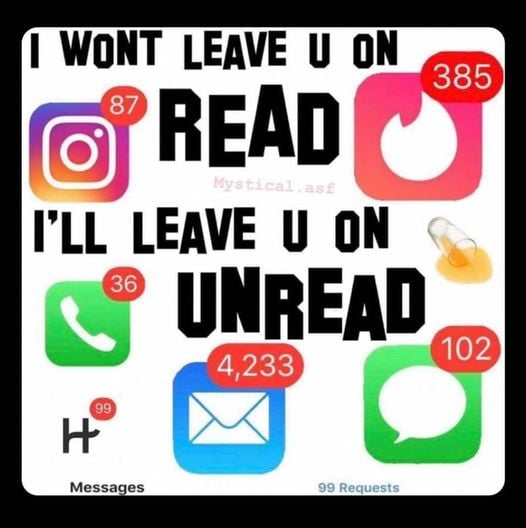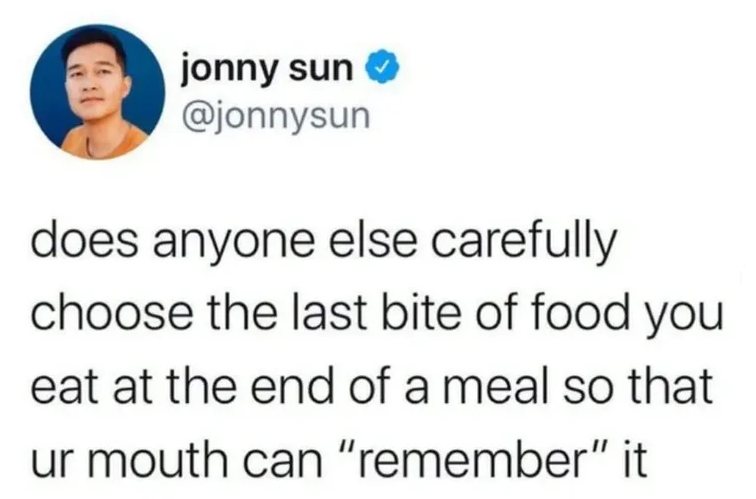The ADD/ADHD Thread (cont'd from Peeves)
-

-
So ... has anyone seen any benefits from therapy for ADHD?
From stuff I've read online it seems like medication + therapy together is the best approach, rather than either one on its own.
But the therapy I see recommended for ADHD is CBT, and my awareness of the history and proliferation of it in modern psychology leads me to be very sceptical of it.
I don't know if MSB is the best place to ask this and I could probably go on some ADHD reddit or something, but the MU* community is what led me to initially pursue an assessment for it and I feel like my thought processes probably share more in common with other MU*ers than with the average person.
-
The problem with CBT is that it is not one of my kinks...
Wait, different CBT.
My Previous doc wanted me to do an 8 week CBT course, but it was only available wednesday evenings and there were hurdles about time and the like that meant i couldn't do it. But Kaiser in my experience is terrible with accommodations in appointments and scheduling that would actually be helpful to people they are treating with ADHD.
However, she did help without the classes a bit, helped me identify when I was having panic attacks that would back me into a corner and make me more irrational. You know, like when arguing on the internet.
TLDR: it was recommended to me as well, I am curious, I can see the benefits in helping one become more self aware about certain aspects of our mental...
But of course my doctor moved her practice and my ADHD ass never followed up, and for some reason psych offices don't think that folks with memory issues need more help and reminders.
-
@kestrel I have no personal experience with it, but someone I know is on medication, and without getting specific, he once said that he only needs to miss a day's dose to notice big changes that negatively impact his life.
-
@greenflashlight said in The ADD/ADHD Thread (cont'd from Peeves):
@kestrel I have no personal experience with it, but someone I know is on medication, and without getting specific, he once said that he only needs to miss a day's dose to notice big changes that negatively impact his life.
I'm currently on medication and the difference of being on/off it is night & day. However I'm still in the "trial" phase so I wasn't prescribed enough to take it daily and even have that last a month. Delays in booking a second appointment and getting the prescription renewed have also given me ample leave to really appreciate that.
So, I've been rationing it for days when I think I'll need it most, i.e. when I have important obligations, expect to be around other people or know that I'll have a good stretch of time to get certain things done. A day I want to spend deep-cleaning the house or sending off a bunch of emails, etc.
I still feel like therapy might also help? Because basically I've structured my whole life up until this point around the expectation that there are certain things I just can't do and therefore shouldn't try to. And now I feel like, actually, with medication, maybe I can. I just need a push to adjust that mindset or relearn basic life skills I've previously adjusted to making do without.
@wretched said in The ADD/ADHD Thread (cont'd from Peeves):
My Previous doc wanted me to do an 8 week CBT course, but it was only available wednesday evenings and there were hurdles about time and the like that meant i couldn't do it. But Kaiser in my experience is terrible with accommodations in appointments and scheduling that would actually be helpful to people they are treating with ADHD.
Haha yeah this kills me. Even before I started to entertain the idea that ADHD might be a factor it's always frustrated me that mental health professionals would be aware that certain things are just hard for me, because of mental health issues, but still make no provisions for it. Like you'd think this is the one field where things are a bit easier and missing or being 10 minutes late to an appointment doesn't carry the same consequences.
My experience of CBT is not good, and I think the scientific consensus surrounding it leaves much to be desired as well. I think its popularity has more to do with business interests than actual worth. I won't rant about this here but you know, google it, and talk to people in the mental health profession who don't personally stand to profit from it or from you.
-

-
Stuck in the loo at work because i sat down to take a pee and now someone came in and is standing outside the door and i have a shy bladder so i guess i will just wait til you finish commenting on the new paint color or whatever ill just die.
-
@kestrel said in The ADD/ADHD Thread (cont'd from Peeves):
But the therapy I see recommended for ADHD is CBT, and my awareness of the history and proliferation of it in modern psychology leads me to be very sceptical of it.
I have done CBT with a therapist who didn't stand to profit from it in any way, and I had a really good experience with it. I was really functional for months and months afterwards, but I've found that not practicing at it means that I don't do the mindful things I'm supposed to be doing.
You can buy your own CBT workbook off of Amazon (or your local bookseller) for about $30. Some of the things in it will apply to you, and some just won't. Make sure your therapist is not an idiot who insists on following the book even when it doesn't make sense. Also, maybe don't buy from the therapist directly.
I mean, I could also pull my copy of the workbook off my bookshelf and submit some exercises semi-regularly here, sort of like group therapy. It is the kind of thing that you do want to spread out, because you want to try to practice some of the mindfulness exercises regularly. Like, for a week or so, before you up the challenge.
I feel like CBT is a great structure to use if you have a good therapist, but it's not perfect. I would definitely do it again, just to refresh it all.
-
I have had a largely positive experience with CBT for my anxiety, although it has been significantly damaged by a therapist lying to me about something I considered very important. My biggest issue with it is that it seems to be rarely practiced with empathy for the patient; most of the time, what I need more than worksheets is understanding and encouragement when it comes to my difficulty with exposure therapy.
But, all that said, there's unfortunately no therapy that everyone benefits from.
-

-
@too-old-for-this said in The ADD/ADHD Thread (cont'd from Peeves):
@saosmash Goodwill LOVES me for this exact reason. I bring them stuff with tags still on it, still in boxes, still packaged. Just shrugging because of course I lost the receipt and the item is more than 30 days old because I can never remember to just take it back when I go again and yes I would love a receipt for this donation that I will inevitably lose within 5 minutes of getting home because I put it down SOMEWHERE because there was a smell in the apartment so I changed cat litter and took out the garbage and wiped down everything that might possibly be smelly only to realize two hours later someone across the hall is cooking something Godawful smelling and its affecting my sinuses, so I took some allergy meds just in case that would help and I sat down to handle some messenger and then my son came home from school so we talked about his day and popped some popcorn because he thought it would be fun for us to pile onto the floor and watch Ghostbusters... yeah. By the time the receipt even enters my mind again, I can't even remember actually putting it down anywhere, let alone where. XD
I can't buy clothes without actually going in, trying them on, sizing, moving, and testing them in at least two other ways. Can't do it. I keep detailed notes about which cut, size, and make fits in what way. I have only two times in my life ordered clothing online, and it was solely to get stuff I had already put through my process.
It's like my brain knows how it will go if I don't.
-

-

-
Well, I've known it deep down since he was born, basically in the womb when the child wouldn't stop squirming in my belly... But my kid has been diagnosed with ADHD. It's a boy, with the classic boy signs of hyperactivity, without too much impulsivity. Like, he won't hit other kids or act out - he's incredibly sensitive and polite - but it's physically impossible for him to sit still and concentrate at school.
If anyone has any advice on this kind of situation I'm all ears. Has anyone else gone through this? My son is in 1st grade.
-
@boneghazi said in The ADD/ADHD Thread (cont'd from Peeves):
If anyone has any advice on this kind of situation I'm all ears. Has anyone else gone through this? My son is in 1st grade.
It may not be ADHD, but if you have a diagnosis, go with it.
Patience. Lots of patience. But there's more to it too. Is he struggling in school with the work? What about at home? Does he understand the material at all Because it could be that he could be on the spectrum too, and I mean that not in a bad way.
My son is often distracted by things because he's easy to distract. He's polite and kind, but not aggressive. He shows signs of what some might consider to be ADHD. He is overly-fixated on horror movies. And he seems to struggle on concentrating. But he's not ADHD; he has a speech delay.
So, if your son still seems observant and gets through the homework with help? Chances are that it's just a thing right now. Because my son's settled back into schooling and is nailing (near perfect) just about every evaluation over the past month. I hope the same happens for you! Just don't panic.
I am slowly unlearning what I learned about mental issues. I more and more believe that what we used to consider "issues" are simply a sign of divergent thinking. Thank goodness we are living in better, more empathetic times. Giving more hugs seems like stupid advice, but the premise is still good.
-
I mean -- have we considered the idea that 'sit still and be quiet' is maybe just not a thing we should expect of a 7 year old of any sort?
-
@boneghazi said in The ADD/ADHD Thread (cont'd from Peeves):
If anyone has any advice on this kind of situation I'm all ears. Has anyone else gone through this? My son is in 1st grade.
My son is the same. Ask for an evaluation and be prepared to fight for accommodations. There are wiggle chairs, exercise balls, movement breaks - just letting him stand and shuffle during "circle time" can help.
-
My son has exactly the same symptoms, we've been dealing with it for just over a decade now. These are the biggest tips I can think of to help with ADHD/Autism/any mental or emotional disorder.
-
Contact you school's guidance office (if they have one), or the main office (if they do not have a guidance office). Inform them of your child's diagnosis and that you would like to schedule a meeting with every and anyone that might need to be present. This could include the school psychiatrist, special ed teacher*, your son's current teacher, guidance counselor, member of school administration, and possibly any advocacy representative that your school may have.
-
Advocate, Advocate, Advocate. The school will do nothing if you do not insist on it. Not always because they don't want to, but they may be overwhelmed. Don't let your kid be the one that slips through the cracks. If there are things you know, as his parent, that he will need to be successful in school? Insist on it.
-
Keep in contact. Obviously with your son, but also with his teacher and anyone else that spends a significant amount of time with him at school. Make sure that the accommodations he is getting are actually working. Don't be afraid to ask for things to change, especially as you're first starting out. There's going to be a lot of trial and error to figure out the exact methods and means that work for your child. The best way to determine what works and what doesn't? His teacher. Get their email address, ask for weekly updates. Ask to be called if anything significant happens so it can be addressed immediately.
-
If there is a school psychologist/psychiatrist/counselor, set up appointments for him to talk to them. Sometimes it's hard for a child to properly articulate what they're feeling to their teacher or parent. This person can be a godsend in helping your son be heard and understood. More, if he's having a rough day, the counselor's office can be a quiet, safe space for him to escape to. Give him some time to center and breathe, then make sure he has what he needs to go back out and finish the day.
- Don't be afraid of the special ed. teacher. The stigma of special ed is dumb and needs to go away. So many students would benefit from an IEP, accommodations, additional assistance, smaller classrooms, extra teachers in the room, etc. The special ed department is where most of those things will come from. Not because your child is 'slow' but because this is precisely what they were trained to do.
Oh, as a personal note, if he is sensitive to noise, think about getting him some noise-cancelling earplugs he can use at school. Not all the time, obvs, but when its time to do math or whatever, he can put them in to help block out the ambient noises that so easily distract and pull attention.
-
-
@boneghazi Attend to the sensory pieces. Find out what he needs in order to focus as well as he can, and give him that to the greatest extent possible. Anecdote: In kindergarten one of my kids was accused of being deliberately inattentive (I don't know what the actual fuck that means), and so during a parent-teacher conference where the teacher was trying to demonstrate that he wouldn't pay attention even when she was speaking directly to him, I spoke with her in a much quieter tone of voice than she was using... and as I was speaking, I slowly removed everything from the table between her and us. As soon as the table was free of objects, my kid looked up and started watching the conversation between us, particularly my half, until the teacher dropped her voice to a lower volume, and then he started looking at her, too. I have learned over time that he learns best:
- in a visually uncluttered environment,
- with a quieter volume than we use for typical conversation, much less kindergarten-teacher-boss-voice,
- with some kind of physical touch sensory input (snuggled up to me works pretty well)
and additionally he melts down when hungry (ADHD is not his only diagnosis), and his school had his lunch scheduled criminally early (9:45am! with 5 more hours of school to go!), so I had them giving him a (nut-free) snack in the afternoon.
Basically, this is the last step of HALTS (hungry, angry, lonely, tired, sensory) - once you're sure focus isn't being impaired by one of the first four, run through the senses and see if you notice attention focusing on less-prefered topics more when there's higher or lower inputs on any of them. I'm happy to talk with you more about this if you think it would help.
-
@thhppbbbt 9:45 am is not lunch. That's midmorning snack. I hate how schools do this kind of crap. I remember my school wanting me to eat lunch at 10:40, and that was too early for me. (And I don't do breakfast as a rule, unless I've been made to, or I just have been up all night). I can't imagine a younger kid being...
Gods I hate the school system.